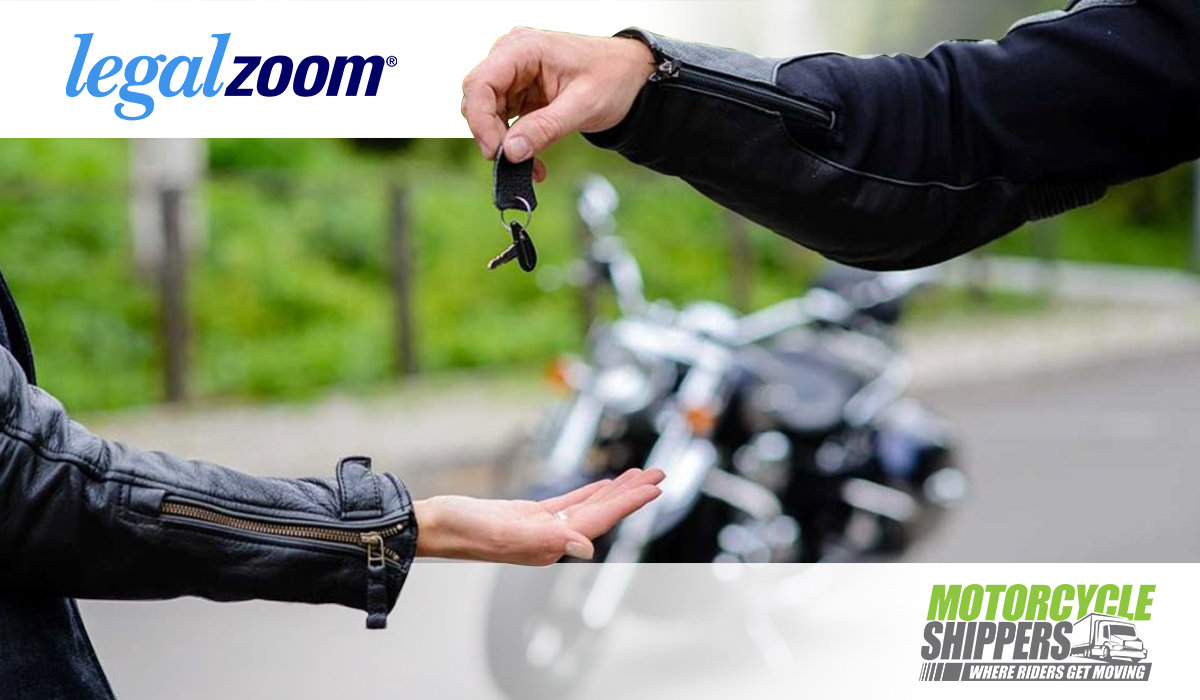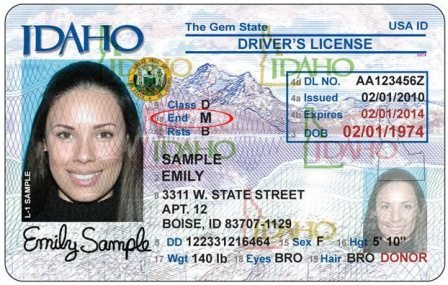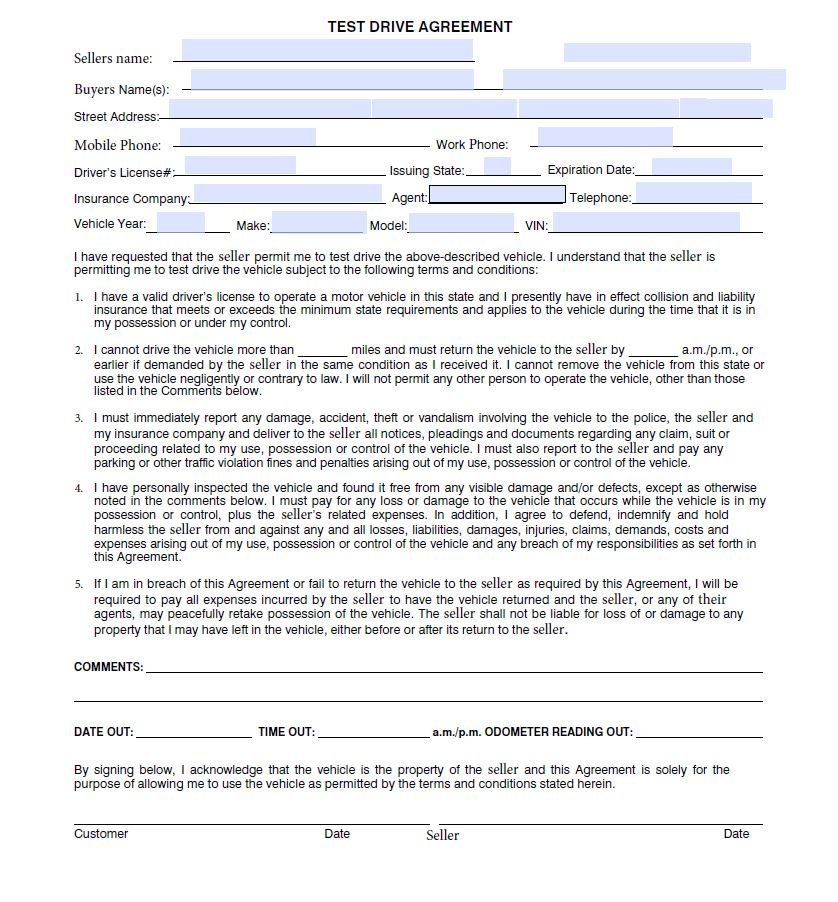Legal Aspects of Selling Your Motorcycle | 2024 Guide

Guest Posted By
Stewart Dunlop, a content manager working with LegalZoom. In his free time, he likes to play football and read Stephen King’s novels.
Legal Aspects To Pay Attention To When Selling Your Motorcycle
Selling your motorcycle is, admittedly, a moment of sadness and happiness. Sad because you’re finally letting go of one of your most prized possessions. And happy since you now get the chance to get rid of an old bike, then perhaps upgrade to a much better one in the near future.
Whichever side you lean towards, the end result depends on not only the condition and price of the motorcycle, but also how you handle the entire sale process.
Thankfully, selling a motorcycle isn’t difficult at all. It’s a pretty straightforward process. But, it could go sideways if you fail to apply the law accordingly.
You might, for instance, get swindled and end up losing the motorcycle without any form of payment. According to the National Insurance Crime Bureau, there are more than 40,000 new motorcycle theft cases each year. And to make matters worse, the corresponding recovery rate is alarmingly low. Only about 39% of them are ultimately found and repossessed.

That’s just the tip of the iceberg. Following the due process doesn’t only protect you against such risks, but also helps you sell much faster as the buyer will know that you are a legitimate seller.
To help you, here are the top legal aspects to pay attention to while selling your motorcycle:
Image Source: Pixabay
Get the Paperwork Right
You might consider skipping the cumbersome selling process and instead, trade-in your motorcycle with a seasoned dealership. Not a bad idea, but when you come to think of it, such a deal may not result in the highest sales price possible.
To get the best out of your motorcycle, you need to sell it yourself. And that requires a couple of legal documents.
For starters, you need the motorcycle’s title. Titles are the single most important proof of ownership when it comes to vehicles in the US. Without one, you won’t be able to transfer ownership of the motorcycle to its buyer. And that would, of course, mean dropping the whole deal altogether.
The second most critical document is the Bill of Sale. You can think of it as the sale agreement since it outlines all the purchase details. More specifically, it identifies all the parties involved as well as the accompanying ownership conditions. You can easily get yourself one from this online form.
Way before you finalize the sale of the motorcycle, however, you might consider accepting an initial deposit payment. It’s a clever way of forcing the buyer to commit to the sale in advance. And to formalize it, you need what we call a Motorcycle Sale Holding Agreement.
The other thing that may possibly come up is a test drive request. Of course, you’d prefer leaving it out of the sale negotiation. No one would want to have multiple strangers taking rides with their precious motorcycle. But, a test drive is inevitable if you need to convince prospective buyers about the motorcycle’s condition.
So, you might also want to throw in a Motorcycle Test Drive Agreement into your paperwork. It should protect you if things go wrong during the test session.
Confirm Your Motorcycle’s Registration Details
Each state has a DMV (Department of Motor Vehicles) handling, among other things, registration of vehicles. In Florida, for instance, motorcycles and other vehicles are registered by the Florida Highway Safety and Motor Vehicles (FLHSMV) department.
Consider conducting a vehicle information check from your state’s DMV. You just need the title number plus the corresponding VIN, and the system will automatically generate your motorcycle’s registration details.
From that alone, you should be able to track information about the motorcycle’s previous owners, any unsettled lien on the bike, as well as your personal details. Scan the whole document for possible errors, before saving it for scrutiny by prospective buyers.
But, if it turns out that there are errors on the document, you can proceed to raise the issue with the DMV, and have it resolved as soon as possible.
Verify Credentials Before Test Rides
The test ride agreement is just one aspect of a motorcycle test ride. For the whole exercise to be considered legal, you need to first verify your prospective buyer’s credentials.
Do they have a motorcycle license or endorsement? 
In short, simply ensure anyone who attempts to test ride your motorcycle is adequately experienced and, follows the standard motorcycle safety laws in your state. Remember, if the prospective buyer were to be stopped by the police during the test ride, and they were not properly licensed, your motorcycle could be impounded and towed.
Finalize the Sale Accordingly
If you have all the documents ready and you’ve come to a mutual understanding on the price, you can proceed to finalize the sale of the motorcycle.
Don’t make the mistake of rushing the process through. Conduct the transaction diligently as you verify every single detail involved. Be honest with your potential buyer, especially if that person has never owned a motorcycle before. Share important information about motorcycle maintenance, discuss post-sale hidden costs a new buyer may not anticipate.
When it comes to payment, for instance, establish if the mode used is genuine before eventually transferring ownership of the motorcycle. Money orders and cashier’s checks are some of the safest cashless payment models you could use, but you should still have that form of payment verified by the bank before you release your bike to the new owner. Otherwise, you could also settle for PayPal or by far the most safest of all, the bank wire transfer.
And as you sign the corresponding sale documents, ensure you retain a copy of every single one of them for future reference. Many states require that complete a vehicle release of liability form and remit such to their motor vehicle department. This step is crucial as unless you have proof that the motorcycle has been transferred to a new owner, you may still be liable for citations, fines and or accidents that occur.
When everything’s done, you should return the license plate to the DMV. They’ll, in turn, issue you a receipt, which you should keep for the long haul.
Ship Your Motorcycle to a New Buyer
If you need to deliver your motorcycle to a new place, you might consider motorcycle shipping services. You won’t be thinking about the best way to deliver or give your motorcycle, the company relieves you from this headache and all you have to do is focus on a nice and smooth sale process.

